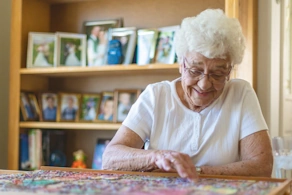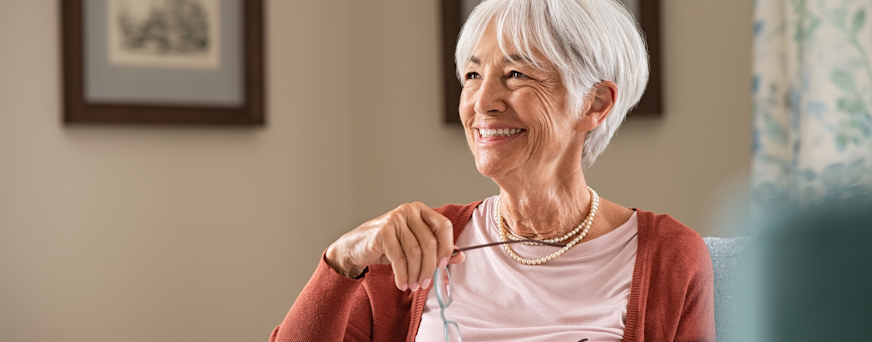When Should You Get the Pneumonia Vaccine for Seniors?
With old age, the immune system is not as strong as it used to be in humans. This is the reason why some diseases such as pneumonia may be severe among the elderly compared to young adults.
Long term fatigue, respiratory distress, and hospitalization may persist even when the infection has gone. Vaccination is one of the preventive measures that can ensure older adults remain active, independent, and in touch with their daily lives.
Knowing when and how to receive the shot is a sure way of being covered at the appropriate time without gaps in coverage.
So, today, in this article, we’ll discuss the exact time when Canadian seniors should get a pneumonia vaccine and what all aspects affect this timing.
Life Assure Product Quiz
Take our 30 second quiz and discover which Life Assure medical alert device is the right fit for you or a loved ones.
Life Assure Product Quiz
Take our 30 second quiz and discover which Life Assure medical alert device is the right fit for you or a loved ones.
Why the Pneumonia Shot Matters for Seniors in Canada?

The pneumococcal shot lowers the chance of severe lung infection. It also cuts the odds of blood infections and meningitis from these bacteria. In Canada, experts strongly recommend protection for adults sixty-five and older.
The pneumonia vaccine for seniors are based on the strains that cause the most severe disease in adults and this is more relevant with age because the immune responses slow down. Timely vaccination provides an additional insurance measure in case of a viral bomb in winter.
Discuss with your doctor how to incorporate the shot into your regular care schedule. Pneumococcal immunization is among the most outstanding sources of protection against these infections in adults.
The Right Time to Get the Pneumonia Shot in Canada
For most healthy seniors, the timing is pretty straightforward. One dose is recommended at age sixty-five or later. That single visit can use a modern conjugate vaccine like Pneu-C-20.
Some regions may also offer Pneu-C-21 as they roll it out. If you already had older vaccines, you still qualify for a dose.
This includes people who got Pneu-C-13, Pneu-C-15, or Pneu-P-23 before. The new guidance says one conjugate dose either way. Talk to your clinic or pharmacist to check the records and plan.
What Factors Affect When Canadian Seniors Should Get The Pneumonia Vaccine?

Timing matters for this shot more than you think. So, here are the key factors that decide when seniors should get a pneumonia vaccine.
Age and overall health
Age sixty-five is the key marker for routine vaccination. Risk rises with age because immunity slows down over time. Frailty, poor nutrition, and limited mobility can add more risk. A single conjugate dose is advised even if you feel strong.
If you turn sixty-five during winter, do not wait until spring. Book the vaccine when it fits your next appointment or pharmacy visit. Earlier is fine once you reach the eligible age. The plan is simple and meant to be easy.
Chronic conditions
Some adults need protection before age sixty-five. Lung disease, heart disease, diabetes, or kidney disease increases risk. So do conditions that affect the spleen or liver. Smoking and heavy alcohol use also raise the chance of severe disease.
For these groups, a conjugate dose is recommended sooner. The idea is to build a shield before an infection starts. Your family doctor can confirm risk status and timing. Bring a current medication list to help the discussion.
Vaccine history and spacing
Your past shots guide what comes next, for sure. Many people received Pneu-C-13 or Pneu-P-23 years ago. Adults still get one conjugate dose like Pneu-C-20 or Pneu-C-21.
If you recently had Pneu-P-23, aim for a one-year gap. In some cases, eight weeks is acceptable for clinical reasons. Records from clinics, pharmacies, or public health help confirm dates. Keep copies, since plans change when details are missing.
Current illness or recent fever
Feeling lousy today often means “not today” for any vaccination plan. The best practice is to delay with moderate or severe illness. A high fever, chest pain, or bad shortness of breath needs attention.
However, mild illness with no fever usually does not block vaccination. Think of a runny nose, a light cough, or a small, steady headache. Your clinician can screen symptoms and help decide the safe choice. Waiting a few days can avoid confusion about vaccine side effects.
In addition, you recover better when your body is not fighting two things. When you feel improved, book the shot and close that risk gap. The simple rule is a healthy day, clear arm, and a quick, easy visit.
Steroids, chemo, or immune therapy
Some treatments can weaken how your body responds to vaccines. Long-term steroid use can blunt the immune response for a little while. Chemotherapy and certain biologic drugs can lower defenses even more.
Your specialist might time vaccines before starting a strong medicine. On the other hand, waiting too long leaves you unprotected during therapy. So teams often pick the earliest safe window for a good response. Dose spacing might change if your immune system is very suppressed.
Extra time between doses can help the body build broader protection. Always loop in oncology, rheumatology, or transplant teams when planning. One team, one plan, and smart timing keep you safer during treatment.
Lifestyle habits
Daily habits shape risk and, yes, the timing of your shot. Cigarette smoking damages airway defenses and invites serious infections. Alcohol misuse also raises risk for invasive pneumococcal disease. If you smoke, your clinician may vaccinate sooner and push quit support.
In addition, caregivers in group homes face higher exposure from shared spaces. Travel during winter may bring crowded planes and busy waiting areas. Getting vaccinated at least two weeks before travel is smart planning.
The same idea helps before planned surgery or rehab admissions. These small timing tweaks fit real life and protect you where you live. Little changes today can mean easier breathing all winter long.
Conclusion
The pneumonia vaccine for seniors is not just a simple healthcare necessity; the vaccine is a protection of your health and autonomy. The righteous shot at the right moment will lessen the danger of severe infections and will allow you to heed sooner, provided you get ill.
Discuss your health history, lifestyle, and previous vaccinations with your physician to create a schedule that works best.











 Get Help With The Push Of A Button
Get Help With The Push Of A Button














